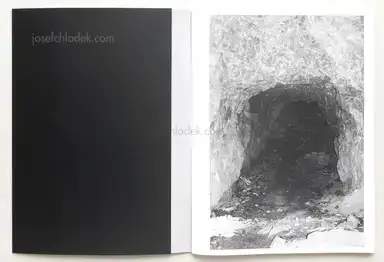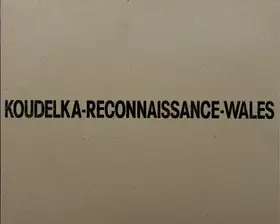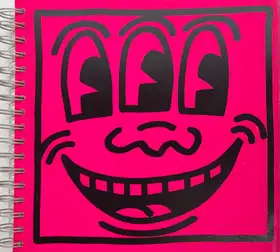Jonas Feige - This Soil We Have Created For Ourselves, Kominek, 2021, Feige

Jonas Feige - This Soil We Have Created For Ourselves, josefchladek.com

Sample page 1 for book "Feige, Jonas – Jonas Feige - This Soil We Have Created For Ourselves", josefchladek.com

Sample page 2 for book "Feige, Jonas – Jonas Feige - This Soil We Have Created For Ourselves", josefchladek.com

Sample page 3 for book "Feige, Jonas – Jonas Feige - This Soil We Have Created For Ourselves", josefchladek.com

Sample page 4 for book "Feige, Jonas – Jonas Feige - This Soil We Have Created For Ourselves", josefchladek.com

Sample page 5 for book "Feige, Jonas – Jonas Feige - This Soil We Have Created For Ourselves", josefchladek.com

Sample page 6 for book "Feige, Jonas – Jonas Feige - This Soil We Have Created For Ourselves", josefchladek.com

Sample page 7 for book "Feige, Jonas – Jonas Feige - This Soil We Have Created For Ourselves", josefchladek.com

Sample page 8 for book "Feige, Jonas – Jonas Feige - This Soil We Have Created For Ourselves", josefchladek.com

Sample page 9 for book "Feige, Jonas – Jonas Feige - This Soil We Have Created For Ourselves", josefchladek.com

Sample page 10 for book "Feige, Jonas – Jonas Feige - This Soil We Have Created For Ourselves", josefchladek.com

Sample page 11 for book "Feige, Jonas – Jonas Feige - This Soil We Have Created For Ourselves", josefchladek.com

Sample page 12 for book "Feige, Jonas – Jonas Feige - This Soil We Have Created For Ourselves", josefchladek.com

Sample page 13 for book "Feige, Jonas – Jonas Feige - This Soil We Have Created For Ourselves", josefchladek.com

Sample page 14 for book "Feige, Jonas – Jonas Feige - This Soil We Have Created For Ourselves", josefchladek.com

Sample page 15 for book "Feige, Jonas – Jonas Feige - This Soil We Have Created For Ourselves", josefchladek.com

Sample page 16 for book "Feige, Jonas – Jonas Feige - This Soil We Have Created For Ourselves", josefchladek.com

Sample page 17 for book "Feige, Jonas – Jonas Feige - This Soil We Have Created For Ourselves", josefchladek.com

Sample page 18 for book "Feige, Jonas – Jonas Feige - This Soil We Have Created For Ourselves", josefchladek.com
Other books by Kominek (see all)
Other books tagged Black & White (see all)
Other books tagged History (see all)
Other books tagged Germany (see all)
Soft cover, printed in silver, pantone on black paper, thread stitching, edition of 500 copies. Design by Jonas Feige and Studio Krispin Hée (Krispin Hée and Tim Wetter).
History is an errant and pliant concept that haunts dreams and fevers the imaginations of the living. It refuses to be fixed, and in its continual motivation for disobedience, it compounds society’s motivations to relate to its recorded events, moments, and changes that have led to a tacit knowledge of the present. In this, history challenges our reliability as something impartial or bearable. In abandoning fixity, history presents an uncertainty more than it offers a solid foundation from which to draw rationality. We covet the narrative of history for our perception of its functions as a way of illuminating our beliefs, however poorly tendered.
Significant themes are redressed in history, and they reform institutions and cultural movements alike. These themes and stories of the past can be borrowed from, bent, and modified to assign a new script or character. The wary citizens of the present use these themes to illustrate and compel historical episodes into backing credentials and reference points for the propaganda of the now. As the noted theorist and historian Frederic Jameson has pointed out, a license to regard history and its moving components as fixed is to err on the side of incaution as a gesture of mutable conscience. As per Jameson, “Always Historicize!” is a crucial and significant response to the problem of history, the past, and its manipulations from the present period.
History at best is a condition that suggests reverberation and echo are its main currencies. There is a relatable notion to history and the past, but one of which can never be exacted by someone who did not experience it firsthand. These echoes and reverberations can be considered convenient when they fulfill a confirmation bias in political terms. In that same example, they can destroy rationality in favor of misread or a mythologizing that tends history as insoluble and its rubric supreme.
Jonas Feige’s This Soil We Have Created For Ourselves suggests that history is an echo and perhaps also a shadow. The artist photographs his native Germany, his Heimat, with an alarmingly poetic sensibility. Underneath the beauty of Feige’s lens lurks a suggestion that history is incomplete, and the echoes of the past are, instead of diminishing, ringing louder. Though the artist uses a lyrical sensibility to discuss German history and its contemporary possibilities to be read as convenient propaganda, the artist also exhibits imagery outright of significance. The 1936 Berlin Olympic stadium with its cracked bell emblazoned with a swastika is one example in which the artist declares the reverberation both in literal and metaphoric terms. His use of shadow on the sides of German homes suggests an encroaching ideological tussle mirrored by the concept of the Volk who dwell between their walls. The emphasis on history and nationhood casts a long shadow over the present that Feige photographs, and he asks us to consider what potential the past has for Germany’s future. The book is a powerful reminder that history and its problematic discourses are never closed and that at any point, variations on its themes may present a disagreeable usage. (Brad Feuerhelm)
Pages: 76
Place: Berlin
Year: 2021
Publisher: Kominek
Size: 22 × 29 cm (approx.)











































